CLIA Successfully Held a Side Event On Online Protection Of Children At The United Nations
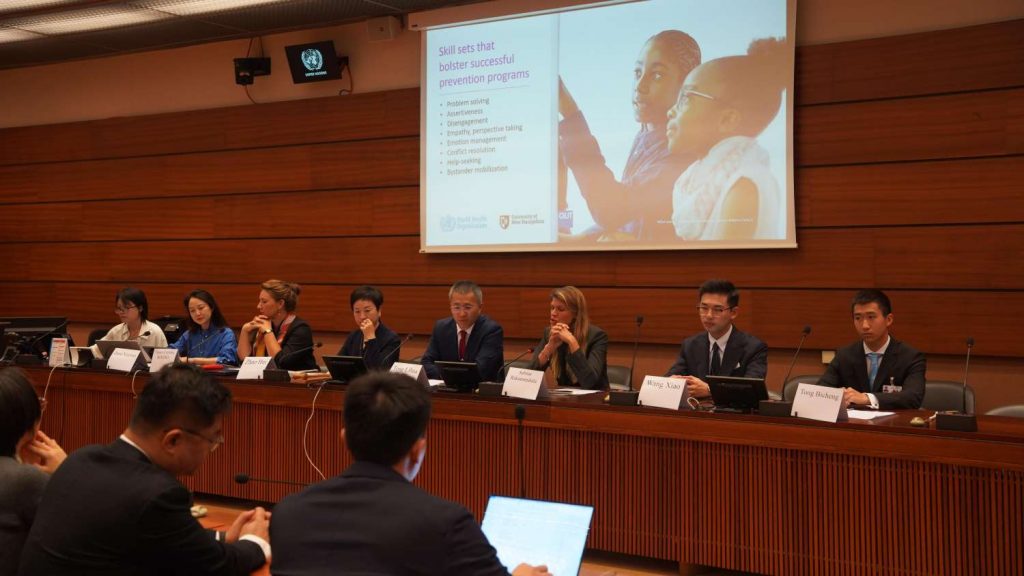
The 54th session of the UN Human Rights Council was held in Geneva from September 11 to October 13. Child Law International Alliance (CLIA) successfully held a side event on the theme of “Practices in Addressing Cyberbullying against Children” at the Palais des Nations.
Experts from World Health Organization(WHO)、International Telecommunication Union(ITU)、CLIA and the China Federation of Internet Societies(CFIS), representatives from platform companies、content creators and teenage users made speeches. At the end of the meeting, CLIA released a global initiative calling on the United Nations to strengthen the protection of children’s rights in the digital age.
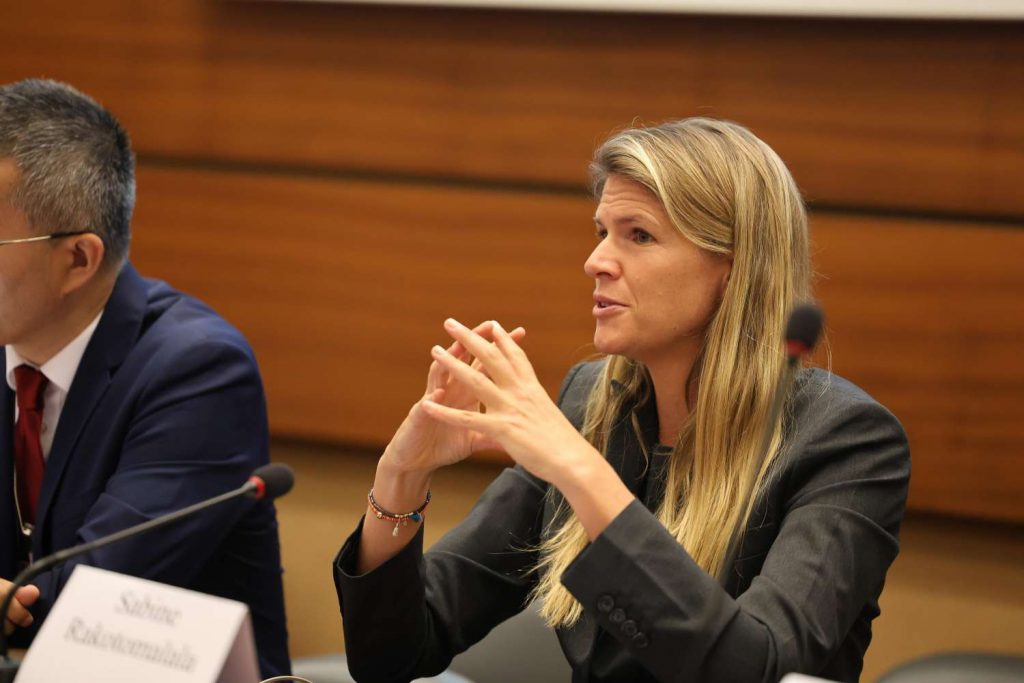
Sabine Rakotomalala, the technical officer of the World Health Organization, introduced the “What Works to Prevent Online Violence Against Children” issued by the WHO at the end of 2022 at the meeting. The guidelines study the global situation of children’s exposure to online violence and propose specific methods for preventing children’s online violence. Sabine mentioned that there are two main forms of child online violence that the international community is currently focusing on: one is child sexual exploitation and abuse on the Internet; the other is cyberbullying and harassment, including cyberbullying, cyberstalking, hacking and identity theft. Sabine suggested that countries should implement multi-party education programs based on schools, which not only guarantees the interaction between adolescents, but also attracts the participation of parents. According to the above-mentioned “Guidelines”, effective ways to prevent children’s online violence are to: combine with offline violence prevention to comprehensively manage children’s online dangers; pay more attention to the online abuse of real-world friends and peers, and cultivate children’s awareness of safety and protection; pay more attention to the cultivation of children’s interpersonal skills, and improve the network literacy of the entire children’s group.
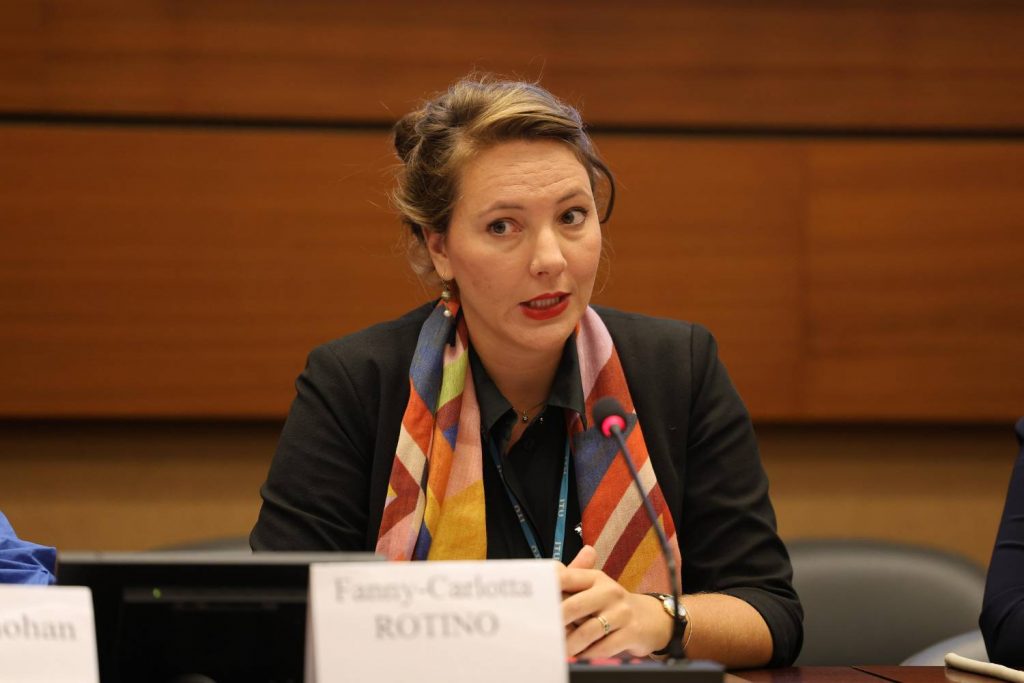
Fanny Carlotta Rotino, the program officer of the International Telecommunication Union, said that the rapid development of the Internet has provided children with unprecedented opportunities for expression, communication, entertainment and learning, but it has also posed major challenges to children’s safety. ITU began to develop and update the “Guidelines for Children’s Online Protection” in 2009, which aims to raise awareness of children’s online protection in society, and provide solutions and comprehensive resources to support children and their families to develop digital skills and digital literacy, and support governments and platform companies to develop child online protection policies and strategies. The “Guidelines” pointed out that preventing children’s online violence should provide guidance to parents and guardians to raise their awareness of online latent risks and threats, and help them create a healthy online environment for children; work with schools and teachers to help them identify children’s online dangers, and master how children react and report when they encounter online violence incidents; ensure children’s participation, and guide them to enjoy the convenience of the Internet while building self-protection awareness and learning self-protection skills.
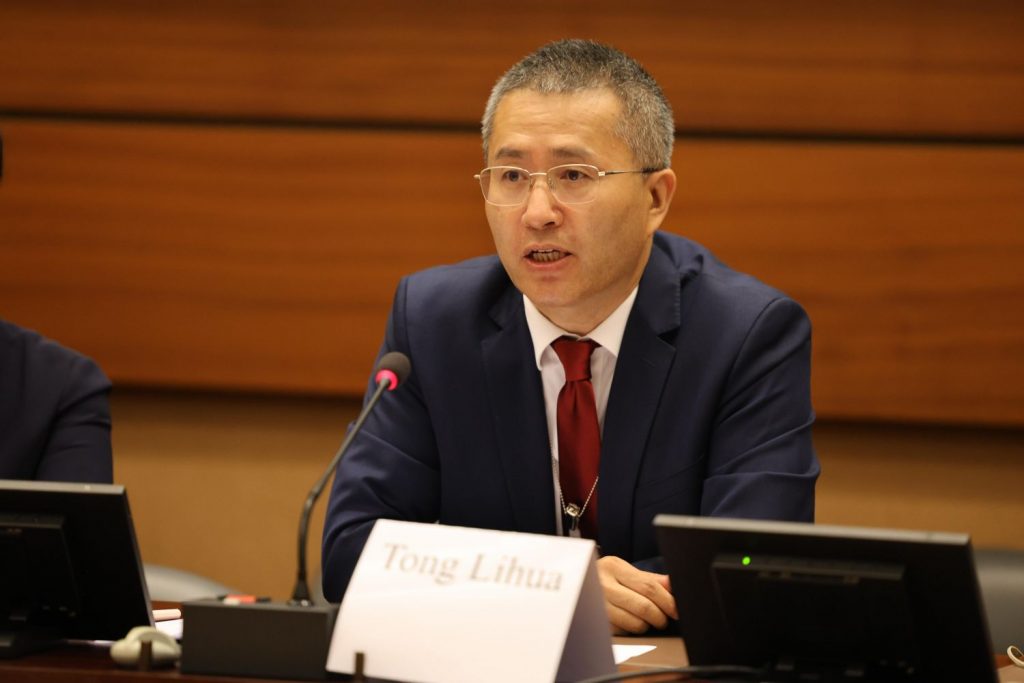
Tong Lihua, the director of CLIA and Beijing Juvenile Legal Aid and Research Center(BCLARC), pointed out that the international community should fully recognize the complexity behind the problem of children’s cyberbullying. Human society is rapidly entering the digital age. User rights have become the most complex and extensive issue affecting citizens’ rights, and children’s rights have been most seriously affected. Cyberbullying is one of the most prominent problems. Second, China has actively explored the prevention and control of children’s cyberbullying. The National People’s Congress has revised the Law on the Protection of Minors and stipulated a special chapter on “cyber protection”. The State Council will soon issue the “Regulations on the Protection of Minors Online”. These laws and regulations clearly specify the specific requirements for the prevention and control of cyberbullying. Fully attaching importance to the main responsibility of platform enterprises, they should play a key role in the prevention and control of children’s cyberbullying. Emphasize multi-party governance, and all relevant parties should actively participate in the prevention and control of children’s cyberbullying. Third, call on the international community to take concrete actions to promote the construction of a global mechanism to prevent and control children’s cyberbullying as soon as possible.
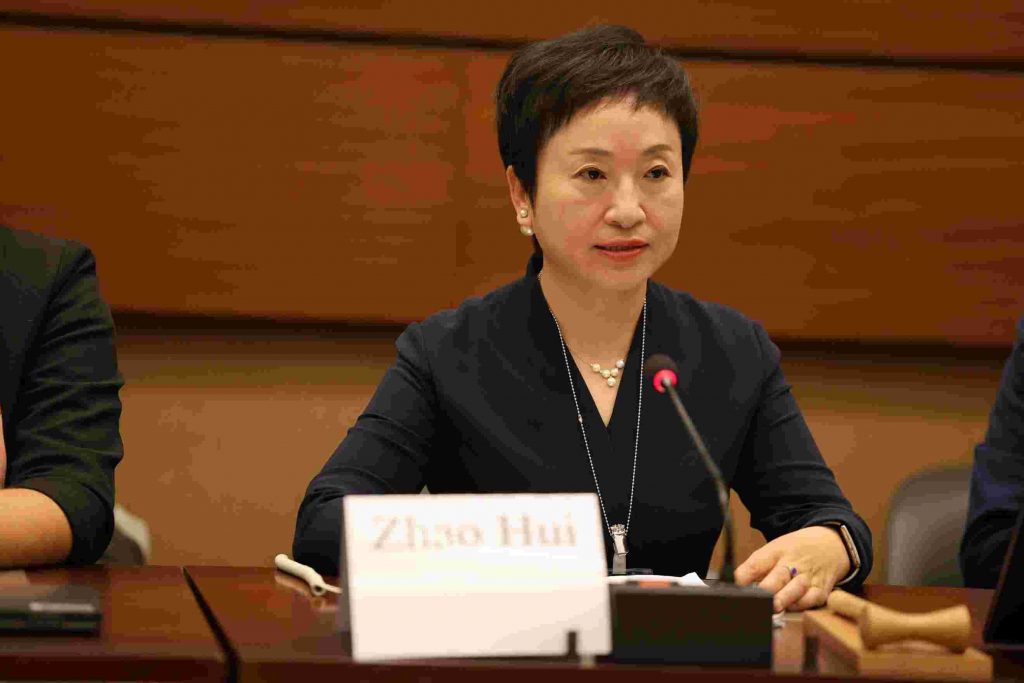
Zhao Hui, the Secretary-General of CFIS, introduced the latest legislative and policy developments in China on the online protection of children, and specifically introduced the many fruitful work that CFIS, as a social organization, has carried out in strengthening the online protection of minors and responding to the problem of children’s online bullying: jointly established a professional committee on online protection for minors in Internet platform enterprises and social organizations, and news media websites; hosted or participated in activities related to the theme of children’s online protection in the United Nations Internet Governance Forum (IGF) for four consecutive sessions; created an “always-on” youth online literacy and legal literacy education cloud classroom; jointly conducted children’s online security research with UNICEF and contacted and guided social work organizations to effectively help local children who have suffered from online bullying get out of the predicament. Finally, she put forward four suggestions: improve the effectiveness of government supervision and promote the whole chain of legislation, law enforcement, and law popularization; consolidate the corporate responsibility of the platform and actively build a child online protection mechanism; play the role of family and school cooperation to improve children’s online literacy; strengthen international exchanges and mutual learning, and jointly promote global children’s online protection governance.
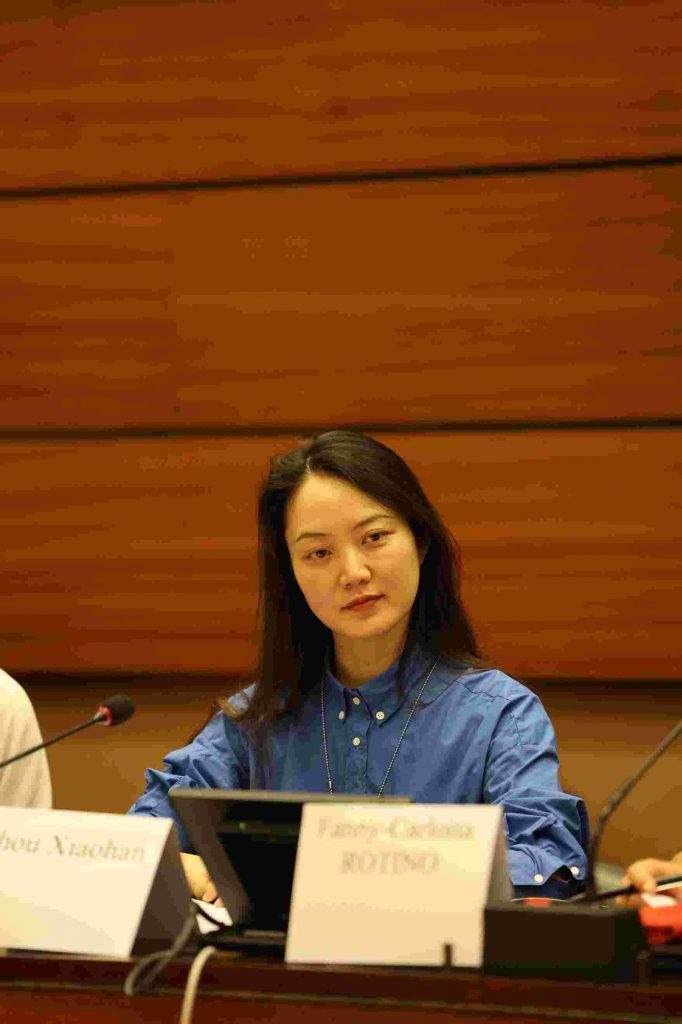
Zhou Xiaohan, the Vice President of Kuaishou, a large domestic platform company, introduced Kuaishou’s work in the field of child protection in his speech. As of the second quarter of 2023, the average MAU user of Kuaishou exceeded 673 million. Kuaishou has always paid attention to the Internet use of young people. First, it created a “youth mode”, setting up exclusive review rules and exclusive content pools for children. In order to protect children from harmful information, functions such as live broadcast, tipping, and comments have been turned off for children users. Adhering to “technology for good”, based on different age groups, through the recommendation mechanism of “interest recommendation + multiple selection + time dimension”, the push to children is more personalized. Set up the “one-click anti-riot” function to help intercept cyber-riot information in a timely manner by strengthening self-developed technologies such as identification and early warning. The Joint Supreme People’s Procuratorate launched the “Guardian of Youth” activity and launched the “Summer Family Education Guide Series Live”, attracting tens of millions of children and parents to watch.
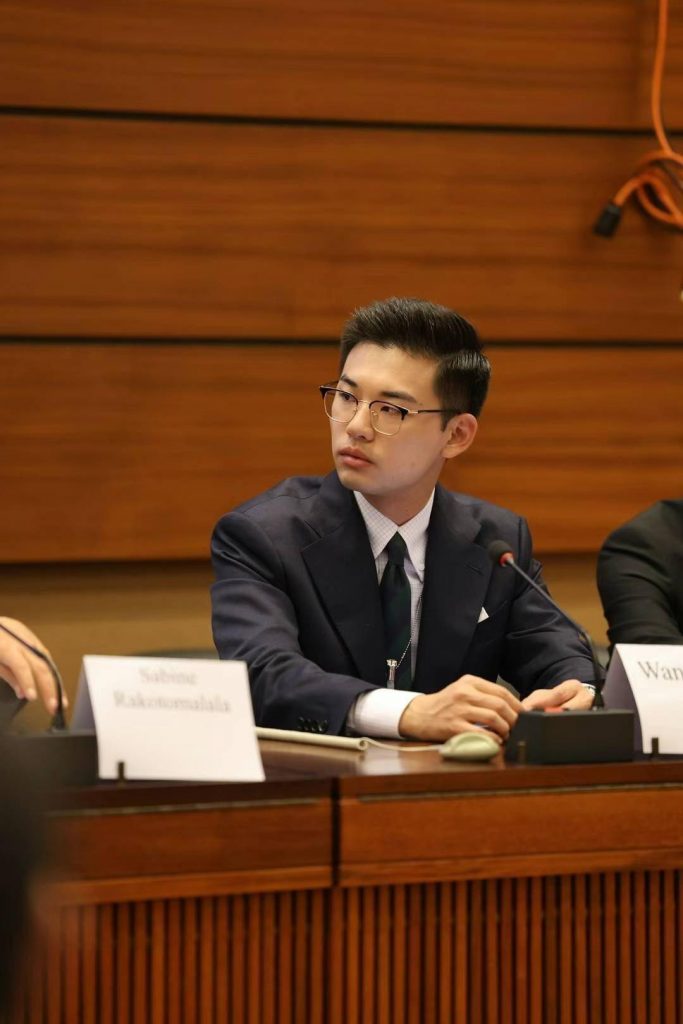
Wang Xiao, the representative of content creator from the Bilibili platform, introduced the work carried out by Bilibili in protecting children: for example, through artificial intelligence to monitor and process bad information that is harmful to children, and to build a professional team to systematically prevent and control bad information. He focused on the Bilibili “personal attack” bad information filtering model, which is based on the technology of factorization and cross-layer parameter sharing based on embedding parameterization. The model is continuously iteratively optimized to reduce the possibility of young viewers being exposed to “artificial attack” bad information. At the same time, the community also guides positive and positive content that is conducive to children’s development. By developing a positive information “bullet comment optimization” module, user-generated bullet comments are scored with artificial intelligence technology. The higher the score, the better the bullet comment content, and the more conducive it is to creating a better bullet comment environment for children to watch videos.
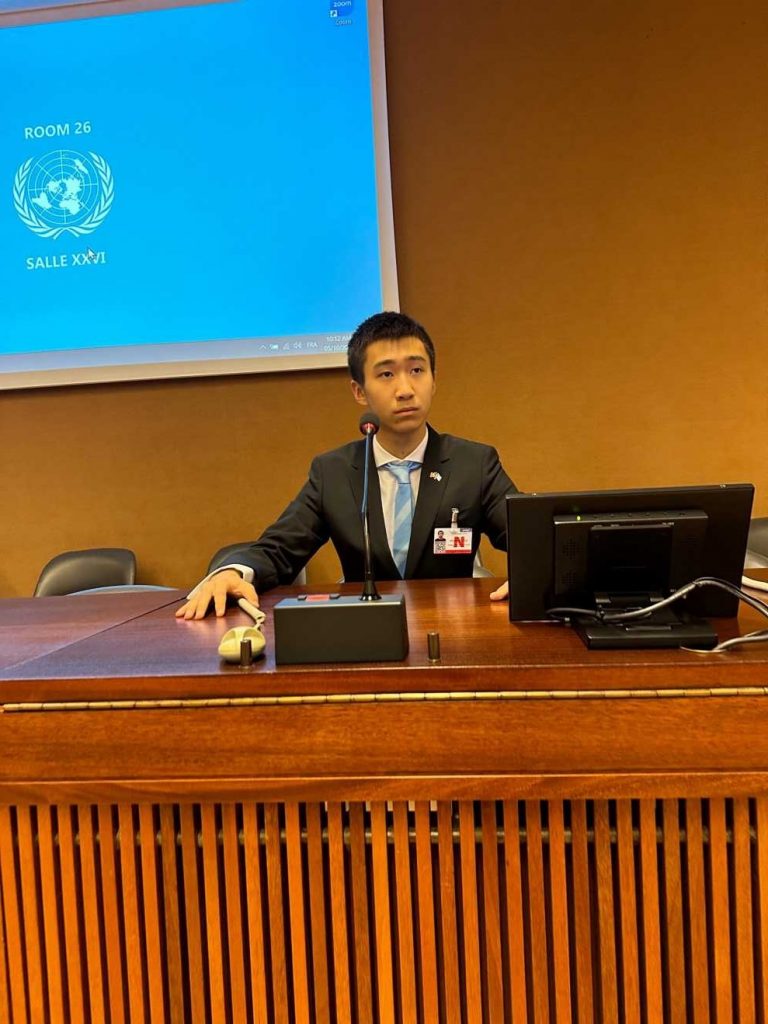
Tong Bicheng, a high school student from China, spoke as a children’s representative. He proposed that children are exposed to the Internet every day and can better understand the problems in the virtual world. Therefore, children must be involved in solving the problem of children’s online bullying. To this end, he called on: platform companies should play a greater role in preventing children’s online bullying. Long-term exposure to online violence and pornographic information has contributed to the increase of children’s online bullying. Platform companies should take more measures to establish child-friendly information platforms. The international community should support children’s participation in solving the problem of online bullying. The United Nations should create more opportunities for children to participate and listen to children’s voices. For example, organize relevant international conferences on the prevention and control of children’s online bullying, and invite children from all countries to participate in discussions. Finally, he called on the international community from the perspective of children to realize that children not only have the right to protection on the issue of online bullying, but also have the right to participate in solving the problem.
At the end of the meeting, Tong Lihua read out the A Call for the United Nations to Strengthen the Governance of Children’s Rights in the Digital Era, the main content is: call on The United Nations to establish special mechanisms for the protection of child rights online, including requesting the special procedures of the Human Rights Council to share experiences and best practices for children’s protection online within different stakeholders, requesting the Office of the United Nations High Commissioner for Human Rights to publish written report on relevant issues, requesting the UN Human Rights Council to promote the Guiding Principles on Digital Platforms and Child Rights as soon as possible. Encourage and support countries to formulate and improve their laws and policies on the protection of the child in the digital age in accordance with the Convention on the Rights of the Child, and the general comment No. 25 (2021) on children’s rights in relation to the digital environment by UN Committee on the Rights of the Child to guide and supervise platforms to play a positive role in protecting child rights. Encourage and support Digital Platforms to make reference to the Guiding Principles on Business and Human Rights and to clarify their commitments and policies on child rights protection, establish internal child rights protection mechanisms, provide more products and services that are beneficial to children’s physical and mental health, take more measures to protect children from internet harms, actively fulfill their social responsibilities and participate in offline child rights protection work, with the aim to promote digital platforms to become an important and active force in protecting child rights in the digital era.
